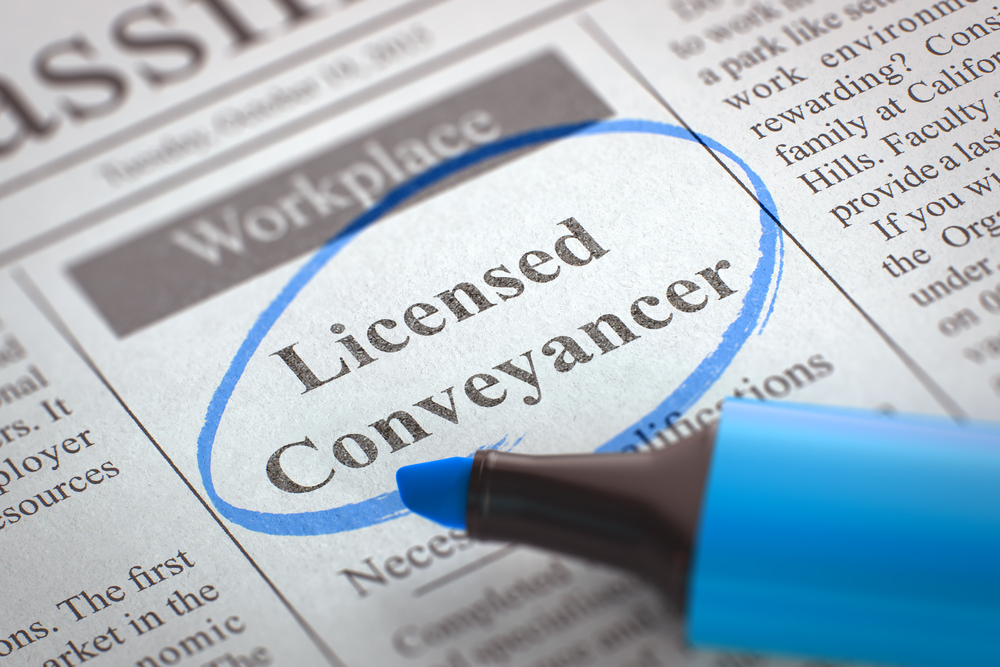Buying your first property can be an exciting but stressful time. Once you have had an offer accepted on your dream house, the purchasing process begins. Stephen Ward, director of strategy at the Council for Licensed Conveyancers (CLC), provides tips from how to choose your conveyancer through to how to keep the process on track to ensure a successful transaction that leaves both buyer and vendor happy
Buying your first property can be an exciting but stressful time. Once you have had an offer accepted on your dream house, the purchasing process begins. Stephen Ward, director of strategy at the Council for Licensed Conveyancers (CLC), provides tips from how to choose your conveyancer through to how to keep the process on track to ensure a successful transaction that leaves both buyer and vendor happy
Once you’ve had an offer accepted find a property lawyer who will work on your behalf through the buying process. Sometimes people are confused as to whether they should engage the services of a lawyer or a licensed conveyancer.
The answer is both are qualified to do the job. The difference is that licensed conveyancers are specialist property lawyers who deal with all aspects of conveyancing day in and day out.
To minimise stress and delays, look for a conveyancer you have confidence in, rather than the cheapest option. You are free to choose whichever conveyancer you are happiest with, and are not under any obligation to use one recommended by the estate agent.
If you have concerns about the professional standing of a conveyancer you are considering instructing, you can check to see if they are registered with a body such as the Council for Licensed Conveyancers or the Law Society. For example, checking to see if they display a secure badge, or similar, on their website, as CLC conveyancers do, to help consumers identify genuine firms and significantly reduce the risk of impersonation online through cloned or copied websites.
Arrange a survey
The next step is to arrange for a surveyor to inspect the property for any problems. Consider either a homebuyers report or a full structural survey – your conveyancer can help you make the right choice.
Searches
After the survey, your conveyancer will submit property searches to the local council (or via the estate agent) to check for planning or local issues that might affect the property’s value.
Valuation
The lender’s surveyor will carry out a valuation to make sure that the property’s value is sufficient in relation to the level of mortgage you have requested.
Check the Energy Performance Certificate
Review the property’s Energy Performance Certificate (EPC), it will be available from the estate agent. If the rating is low, then heating the property will be expensive. Improving this may require significant investments, such as a new boiler or insulating the loft.
Finalise the offer and mortgage
Finalise the offer and mortgage as informed by the lender’s valuation, EPC and survey findings. The information received from these reports may lead you to renegotiate the price and, if a lower price is agreed you will need to advise the lender so that a new offer can be issued.
It is important to make sure you keep an open channel of communication with your conveyancer and respond to any request for any information from yourself promptly. This helps keep the process moving along and prevents either side from thinking that the other isn’t serious about completing the transaction.
Review contract
A contract will be sent to you for signing, together with the Stamp Duty Land Tax (SDLT) form and transfer. Remember that your signature(s) on the form must be witnessed by an independent adult (but not a relative).
Before signing, it is important to go through the contract with your conveyancer, to ensure that all the details are correct, your queries have been answered and that you are happy with what fixtures and fittings the sellers have agreed to leave in the property.
Check the plans to ensure that they show the full extent of the property and the land that you believe you are buying.
Although you will be signing the contract in preparation for exchange, you will not be committed to the purchase until a formal exchange of contracts has taken place.
Exchange contracts
Once you have exchanged contracts, both you and the seller are legally committed to the transaction, and your deposit will be paid.
Should you pull out of the transaction without due reason, you will lose this deposit and could be sued. If the seller should pull out, your deposit will be returned to you and you could have grounds on which to sue them.
If you are relying on the sale of your existing property to fund the purchase of your new one then you will need to ensure that the contracts for both properties are exchanged at the same time.
Completion
One of the final steps in the process will be negotiating, via your conveyancer, a completion date with the seller. The length of time between exchange and completion is usually 7-28 days. This timeframe can be influenced by any problems flagged up by the surveys or information received.
Buildings insurance
It is important to make sure you obtain appropriate buildings insurance that complies with your lender’s requirements.
Completion and stamp duty
Your mortgage money is received by your conveyancer and purchase funds are transferred to the seller’s lawyer. The property changes ownership with the deeds of the property being transferred between the lawyers. The keys are then handed over via the estate agent, and you have successfully purchased your home!
Working closely with your conveyancer or lawyer is key to ensuring a smooth transaction. However, no matter how keen you are to get the keys to your new property, it’s worth bearing in mind that the average conveyancing period in the UK is 11 weeks and that the chain can only move as quickly as the slowest link.
The CLC is the regulator of specialist property lawyers. For more information visit www.conveyancer.org.uk















